Retro Replay Review
Gameplay
AStar builds its challenge around a deceptively simple core mechanic: your character slides in a straight line until colliding with an obstacle, at which point you’re free to change direction. Inspired by the classic calculator title DStar, each puzzle screen is dotted with collectible items that must be gathered in the fewest moves possible. The requirement to optimize every slide elevates what could be a casual grid‐based romp into an exercise in spatial reasoning and foresight.
(HEY YOU!! We hope you enjoy! We try not to run ads. So basically, this is a very expensive hobby running this site. Please consider joining us for updates, forums, and more. Network w/ us to make some cash or friends while retro gaming, and you can win some free retro games for posting. Okay, carry on 👍)
As you progress through AStar’s roster of levels, you’ll find that early stages serve as gentle introductions to movement patterns—straight lines, corner bounces, predictable walls. But the difficulty ramps steadily, introducing sliding blocks, narrow corridors, and one‐way gates that force you to plan several moves ahead. The true satisfaction comes not just from clearing a room, but from doing so in the absolute minimum moves, turning each screen into a miniature masterpiece of efficiency.
Feedback is immediate and clear. If you meet or beat the target move count, you’re rewarded with a crisp chime and a visual flourish in the score area. Exceeding the minimum triggers a distinct tone and a color shift in the score display—there’s no hard stop, but you’ll know you’ve fallen short of perfection. This system encourages replay, inviting you to refine your approach until each puzzle clicks into place.
Graphics
Visually, AStar embraces a clean, modern take on retro aesthetics. The game’s crisp vector‐style sprites and bold color palette ensure that every collectible, wall segment, and floor tile is easily distinguishable. Item icons pop against the subdued background grid, making it simple to scan each room and plan your route before committing to a slide.
Animations are minimal but effective: your character glides smoothly, stopping with a satisfying skid effect when hitting barriers, and collectibles vanish with a quick sparkle. The user interface—move counter, best-score indicator, and level name—sits unobtrusively at the screen’s edge, leaving the play area uncluttered. Subtle shading and drop‐shadows lend depth to what might otherwise be a flat puzzle canvas.
Performance is rock‐solid even on lower‐end hardware. There are no distracting frame drops or input lag, which is crucial when precision timing and split‐second planning are part of the core experience. Overall, AStar’s graphics strike a fine balance between functional clarity and stylistic flair.
Story
While AStar is primarily a puzzle game, it frames your journey as an interstellar treasure hunt. You play as an intrepid explorer charting mysterious grid worlds to recover ancient “stars” scattered throughout cosmic mazes. Each level is presented as a new region of space, complete with a brief title that hints at the puzzle’s theme or challenge.
Narrative is delivered sparingly—much like the gameplay itself, the story emerges through environmental design and level progression rather than lengthy cutscenes. A handful of flavor text snippets between worlds provide just enough context to keep you invested, without pulling you away from the core sliding‐block action. This light touch keeps the focus squarely on strategic movement while still offering a sense of purpose.
For players who crave deeper lore, the minimalist approach may feel sparse. However, the understated storytelling complements the game’s streamlined mechanics, allowing you to infer your character’s mission through every cleared room and every perfectly solved puzzle.
Overall Experience
AStar delivers a meticulously crafted puzzle experience that rewards patience, planning, and precision. The game’s sliding mechanic is instantly accessible yet reveals layers of complexity as obstacles multiply and room layouts become more intricate. Clearing each level in the target moves feels genuinely triumphant, making every replay worthwhile.
Whether you’re a veteran puzzle‐game enthusiast or someone looking for a bite-sized brain‐teaser, AStar offers adjustable challenge and high replay value. Speedrunners will relish shaving fractional moves off their best times, while casual players can enjoy working toward a perfect run at their own pace. The absence of intrusive timers or penalties ensures a stress-free environment for thoughtful play.
With its polished presentation, rock-solid performance, and elegantly simple premise, AStar shines as a standout in the sliding‐block genre. If you appreciate minimalist design married to satisfying puzzle depth, this cosmic maze voyage is well worth your attention—and your stars.
 Retro Replay Retro Replay gaming reviews, news, emulation, geek stuff and more!
Retro Replay Retro Replay gaming reviews, news, emulation, geek stuff and more!
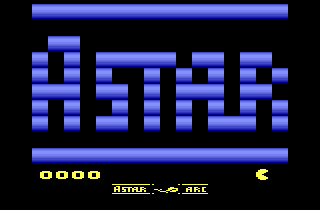
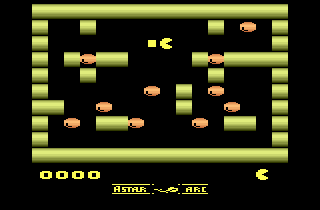
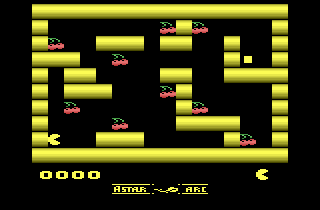
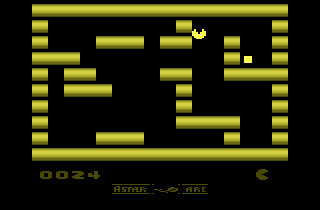
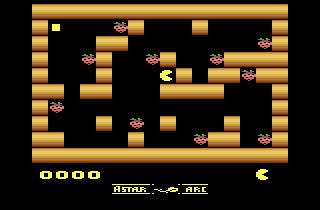



Reviews
There are no reviews yet.